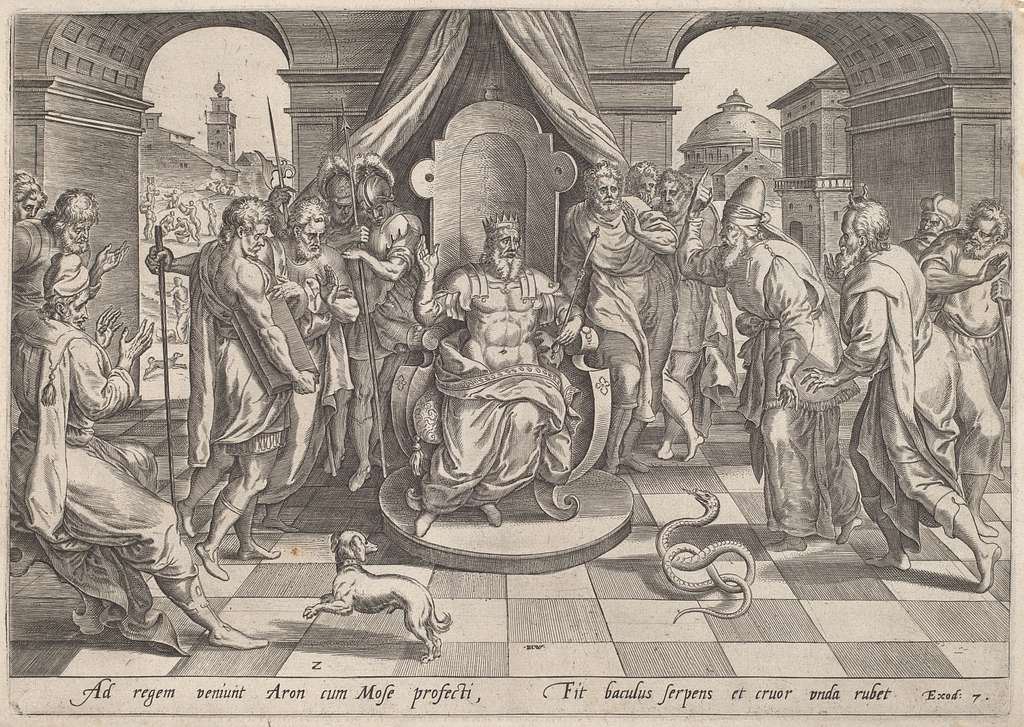By Solomon Moon
 There are two questions proposed in the movie When Harry Met Sally: 1) Can men and women just be friends? And 2) When exactly did Harry meet Sally? Fans of the film may consider the latter question to be obvious, but truly meeting someone in a relationship comes at a pivotal moment. These two questions are not unlike the two questions that came to mind while studying Parsha Vaera.
There are two questions proposed in the movie When Harry Met Sally: 1) Can men and women just be friends? And 2) When exactly did Harry meet Sally? Fans of the film may consider the latter question to be obvious, but truly meeting someone in a relationship comes at a pivotal moment. These two questions are not unlike the two questions that came to mind while studying Parsha Vaera.
This week’s Torah portion opens with G-d reintroducing Themself to Moses. This is particularly significant, if not peculiar, because it conveys two things about G-d and Their relationship with the Israelites and patriarchs. First, the patriarchs and G-d were not on a first name basis, which could mean G-d had a lower-level of trust in them. Second, the Divine desires not only to be loved, but to be chosen in the vicissitudes of life through our actions.
When Harry Met Sally also opens with an introduction of Harry meeting Sally before going on their rocky road-trip together. Harry and Sally were anything but fast friends. This early moment is reminiscent of G-d’s relationship with humans before Abraham and Sarah. This brings up the first question: Can G-d and humankind be friends?
The patriarchs before Moses seem to have endeavored to answer that question in the affirmative. Yet, Vaera reveals that G-d withheld Their true name from the patriarchs, despite their good intentions to be faithful to Adonai. From a human perspective, it’s as if there is some relational trauma that needs to be healed before G-d can entrust the ancient Hebrews with Their ineffable name.
Harry has his own reservations about distrusting the opposite sex to remain platonic due to his past experiences with women. Perhaps G-d’s past experiences with humanity prevented Them from being vulnerable enough to share something so precious with the Hebrews.
If so, that would make the journey of the Israelites up to this point a means for testing their faithfulness in order to gain G-d’s full trust as partners in Creation. It isn’t until the Israelites become slaves in Ancient Egypt and prove to remain faithful to the teachings and covenants they’ve inherited, long after the patriarchs of the tribes have passed, that one can see that the Israelites have made evident their unconditional love for G-d. In the face of discrimination, slavery, violent oppression, and death, the Israelites choose G-d and their tradition.
The Israelites journeyed from a relatively favorable life before the famine to an unfavorable life in Ancient Egypt and still chose the G-d of their ancestors. This is like the end of When Harry Met Sally. While Sally, being single, wrestled with feeling unloved and lonely on New Year’s Eve at a party, Harry, several blocks away, finally realizes he’s not just in love with Sally. He wants to spend the rest of his life with her too, immediately. With a fiery love in his heart, Harry runs across town to confess to Sally in the same way G-d chooses to confess to Moses from the burning bush. Harry and Sally finally meet one another when they choose the love of their partner over everything else, including themselves.
The sages have often used marriage as a metaphor to describe the relationship between the Israelites and the Divine. Following that tradition, the opening of Vaera is analogous to the ending of When Harry Met Sally. If the receiving of the Torah is the matrimonial “I do,” then the moment G-d reveals Their true name must be the holiest, bended-knee marriage proposal of all time. Here is where G-d chooses the Israelites and fully realizes their love for each other to begin a more intimate relationship. Thus, G-d reveals Their name to impress upon the Israelites how much They care about them and how far They are willing to go to prove that.
The plagues, the liberation from Mitzraim, are G-d’s way of saying, “I choose you too, Israel.” Redemption of the Israelites is a theme associated with the Exodus that is merited to the Divine. But there also appears to be a redemption of humanity and their fall from grace to warrant and renew G-d’s trust in humanity. This redemption can be merited to the Israelites who chose their faith over their circumstances. This kind of love and trust draws the Divine closer, bringing more Light into the world. This is how the second question is answered.
When did the Divine truly meet Israel? When Israel’s love matched their faith in mitzvahs without any sign of reward. The Israelites made space for the Divine in their hardships. So the Divine made space for them to be liberated from it. To open your heart to care unconditionally is an invitation for the Divine to kindly do the same for you.